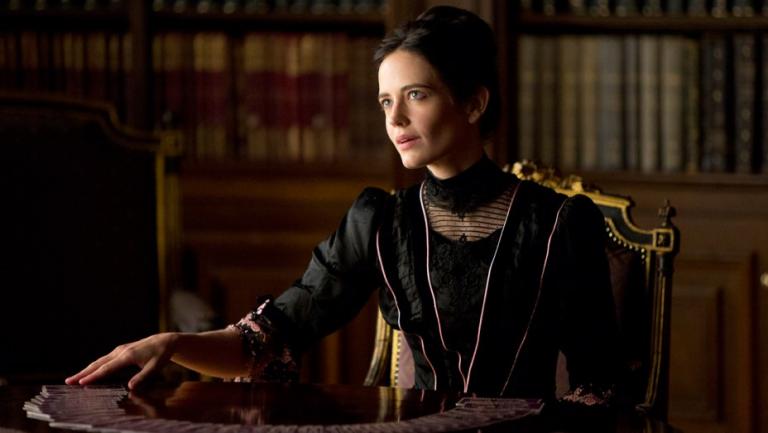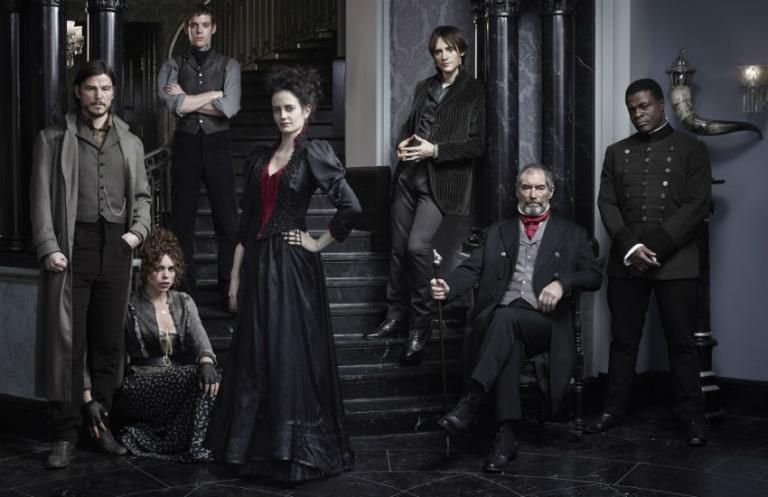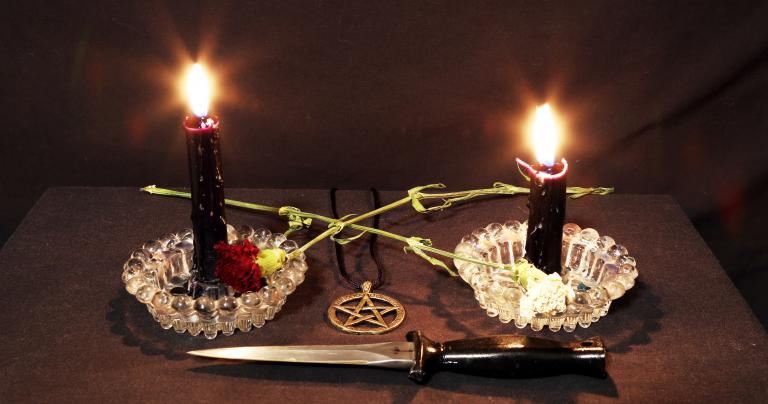My most widely read blog posts are those that discuss timely matters. My second most widely read posts can be described as “how to do Paganism better” – posts on foundational beliefs and helpful practices.
So why am I writing about a fictional character in a TV show that ended four years ago?
Because sometimes something gets into my head and I have to write it out, and once I do I might as well share it in case someone else is thinking along the same lines. Because usually someone is.
You’ve probably seen the meme going around social media: “describe yourself in three witches.” To no one’s surprise, my three witches were Hermione from Harry Potter, Willow from Buffy the Vampire Slayer, and Merlin from Excalibur.
A friend included Vanessa Ives from Penny Dreadful in their list. My response was “on my good days I aspire to be Vanessa Ives at her witchiest.”
And now I need to explore that aspiration in more depth.

Below here are spoilers for the first three seasons of Penny Dreadful, though if you haven’t seen it by now you probably don’t care. I knew how it ended when I saw it and I was glad I did – it saved me from a disappointing surprise. Regardless, you’ve been warned.
Penny Dreadful – City of Angels is due out April 26 on Showtime. It may be good in its own right but from all I can see it will tell a very different story.
Penny Dreadful was brilliant and beautiful
Penny dreadfuls were the serialized horror stories of 19th century Britain, so named because they cost a penny. Penny Dreadful draws from the more literary characters of that period: Dracula, Frankenstein and his creature, Dorian Gray, Doctor Jekyll, and others. It’s set mostly in 1890s England.
Vanessa Ives (played by Eva Green) is the lead character. She takes the slot of Lucy Westenra as the best friend of Mina Murray in Dracula. From there the characters and the story take off in their own direction in fine fan fiction style.
I’m not going to summarize the show. If you haven’t seen it, or if you want to refresh yourself on Vanessa’s story, this Wikipedia page may be helpful. All three seasons are currently on Netflix.
Much of Vanessa’s story – indeed, much of Penny Dreadful – is a commentary on the expectations of and limitations on women in the Victorian era, expectations and limitations that have not yet been eliminated from our society. But stories have lives of their own, and different people respond to them in different ways. We often see ourselves in characters and situations that aren’t directly comparable. That’s part of the magic of fiction.
And I saw a lot of myself in Vanessa Ives.
Vanessa’s ending was bad writing
When I see something I don’t like with a fictional character I always wonder if I should blame the character or blame the writer.
If that doesn’t make sense to you, you don’t understand the magic of storytelling. If you’ve read fiction to any extent – much less if you’ve written any – I imagine you get it. Characters have lives of their own.
In the case of Penny Dreadful I blame the writers for creating a woman who went through hell and came out stronger for it and then turned her into a prize to be fought over by men – even if one of the men is a God. When show writer John Logan was asked why Vanessa had to die, he said “because she’s a character desperately in need of peace, and the mortal realm was not going to give it to her.”
This is not the thinking of a character – of a person – who was asked “do you really want to be normal?” and on two occasions gave a clear answer of “no.” It might be the thinking of someone who attempted to starve herself to death while locked in a torturous sanitarium or mired in depression induced by abandonment. But it is not the thinking of someone who when pushed to swear allegiance to an adversary screamed “my soul is mine” and who just three episodes before the finale declared “I accept … myself.”
And in the end none of that mattered. Vanessa was written into a corner where she had to sacrifice her life to save the world.
I hated the ending, and I blame the writers.

But I saw real-life failure in that ending
As unsatisfying as the ending was, there was an element of truth in it: people who are unable to break free from bad religion are often killed by it, spiritually if not physically.
This is where I have to draw a distinction between real life where spiritual truth is uncertain and a polytheist worldview looks most likely, and a fictional world where a Christian worldview (albeit an unorthodox Christian worldview) is presented as fact. As much as I wish the writers had set the show in a world with many valid religions, that’s not the story they told.
For all that she saw and did, and for all that the Catholic Christian God of her childhood abandoned her, Vanessa kept trying to reconcile with him.
And I’ve seen plenty of real, nonfictional people do exactly the same thing.
I spent eight years dabbling with Paganism and witchcraft and going nowhere with it, because I hadn’t dealt with the baggage of my fundamentalist childhood. I come across numerous Pagans whose religion still includes Christian assumptions.
Every October, TV preacher Pat Robertson rolls out the “ex-witches” – people who claim to have been high priests and high priestesses of covens until they “saw the light.” They may have called themselves high priests and priestesses, but listening to their stories makes it clear they never earned the titles. And then when things got hard or when something scary happened, they went running back to whatever form of Christianity they grew up with.
I wanted Vanessa to end the series as the next Cut-Wife living on the moors, or as a London shopkeeper with a back room where she consults with people with supernatural problems. Given her growth during the series I don’t think that was unreasonable.
But sadly, neither was running back to the religion of her childhood and its lethal expectations.
I escaped the toxic religion of my childhood, and in that I’m better than Vanessa Ives.
On my good days I aspire to be Vanessa Ives at her best
While I’m a firm believer in free will, there is such a thing as destiny. Over time your core nature, your environment, and the sum of your choices put you on a path from which it is difficult if not impossible to escape. That becomes your destiny.
Vanessa Ives was destined to be a witch.
She was a good witch (“good” as in strong and effective, not as in moral) who could have been a great witch. From the first episode where she spread the Tarot cards across the table to her psychic connection with Mina to her possession at the séance (which was also an amazing acting performance by Eva Green), Vanessa was what you expect a witch to be.
My favorite scene is in the episode “Little Scorpion” in Season 2. Vanessa is alone in the Cut-Wife’s cottage while Ethan goes after Geoffrey Hawkes, who burned her mentor alive, branded Vanessa with a hot iron, and promised to kill her if she didn’t leave and never return. She grabs the book of dark magic – knowing it may cost her her soul – and speaks the Verbis Diablo. Hawkes is eaten by his own dogs. Vanessa removes the threat and delivers justice untempered with mercy, cost be damned.
One of my daily prayers is that I will “do what must be done.” I wrote those lines long before I watched Penny Dreadful, but after I saw it, I wondered: if necessary, would I become the Little Scorpion? I like to think I would, but I suspect I would not.
Our world is not the world of Penny Dreadful. Souls aren’t sellable – they’re the essence of who and what we are. Curses are rarely a wise strategic move and most magic is simply an operation that either you can do or you can’t do.
But some magic – including some magic that is not necessarily maleficent in nature – comes with a price. Would I pay that price? Would I do what must be done, no matter the cost?
I hope I never have to find out.
I suspect I will.
On that day, I hope I’m as good as Vanessa Ives.


















